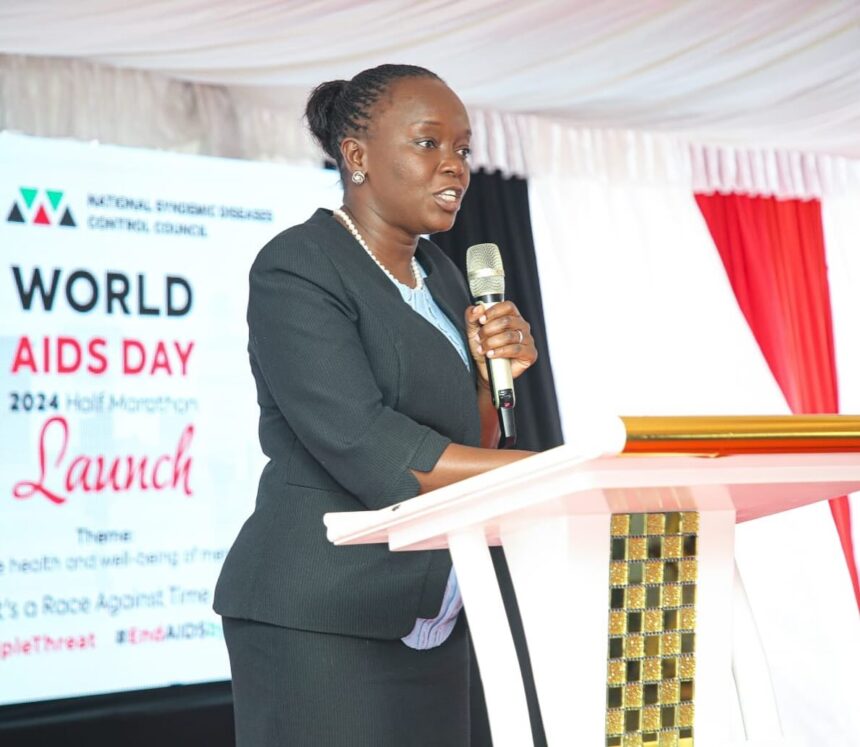Kenya has made remarkable strides in reducing new HIV infections, achieving an 83% decrease over the past ten years, with cases dropping from 101,560 in 2013 to 16,752 in 2023, according to Health Cabinet Secretary (CS) Dr. Deborah Barasa.
The number of Kenyans living with HIV on antiretroviral therapy (ART) has almost doubled, reaching 1,336,681 in 2023. “Although AIDS-related deaths have fallen by 65%, from 58,446 in 2013 to 20,480 in 2023, each loss is a reminder of the work still needed,” Dr. Barasa said at the launch of the World AIDS Day 2024 Half Marathon in Nairobi.
Achieving viral suppression remains a key focus, and 97% of people on treatment in Kenya have achieved this milestone. Dr. Barasa also highlighted significant progress in reducing mother-to-child HIV transmission, down from 14% in 2013 to 7.3% in 2023, with an ambitious target of less than 5% by 2025.
Despite these advances, challenges remain, especially among children, adolescents, and young people. “Adolescent girls are particularly vulnerable, facing a triple threat of HIV infection, early pregnancies, and risks of gender-based violence,” Dr. Barasa emphasized. She called on all Kenyans to unite in the mission to end AIDS, noting that the government has prioritized universal health coverage (UHC) with a goal to eliminate AIDS in Kenya by 2027, ahead of the global 2030 target.
The CS explained that Kenya’s health reform model, aimed at supporting UHC, has been reshaped to tackle inequalities and strengthen the social health insurance program, emphasizing preventive healthcare as foundational. Dr. Barasa urged Kenyans to register with the Social Health Authority (SHA) to support this mission of improving access to healthcare for all.
This year’s World AIDS Day theme focuses on tackling the “triple threat” of HIV, unintended pregnancies, and gender-based violence, aiming for a future free from HIV-related health risks. Although AIDS-related deaths remain a challenge, with 20,480 lives lost in 2023, efforts are focused on promoting early diagnosis and treatment, especially for men and boys, who face unique barriers to accessing healthcare.
This year’s World AIDS Day commemoration will particularly highlight the health of men and boys, with approximately 487,710 living with HIV in Kenya. Dr. Barasa noted that men often encounter difficulties in accessing health services, which impacts family and community health. She invited all Kenyans to participate in the World AIDS Day Half Marathon on December 1st, either by running, supporting, or volunteering, as part of a collective step towards a resilient, HIV-free future.



